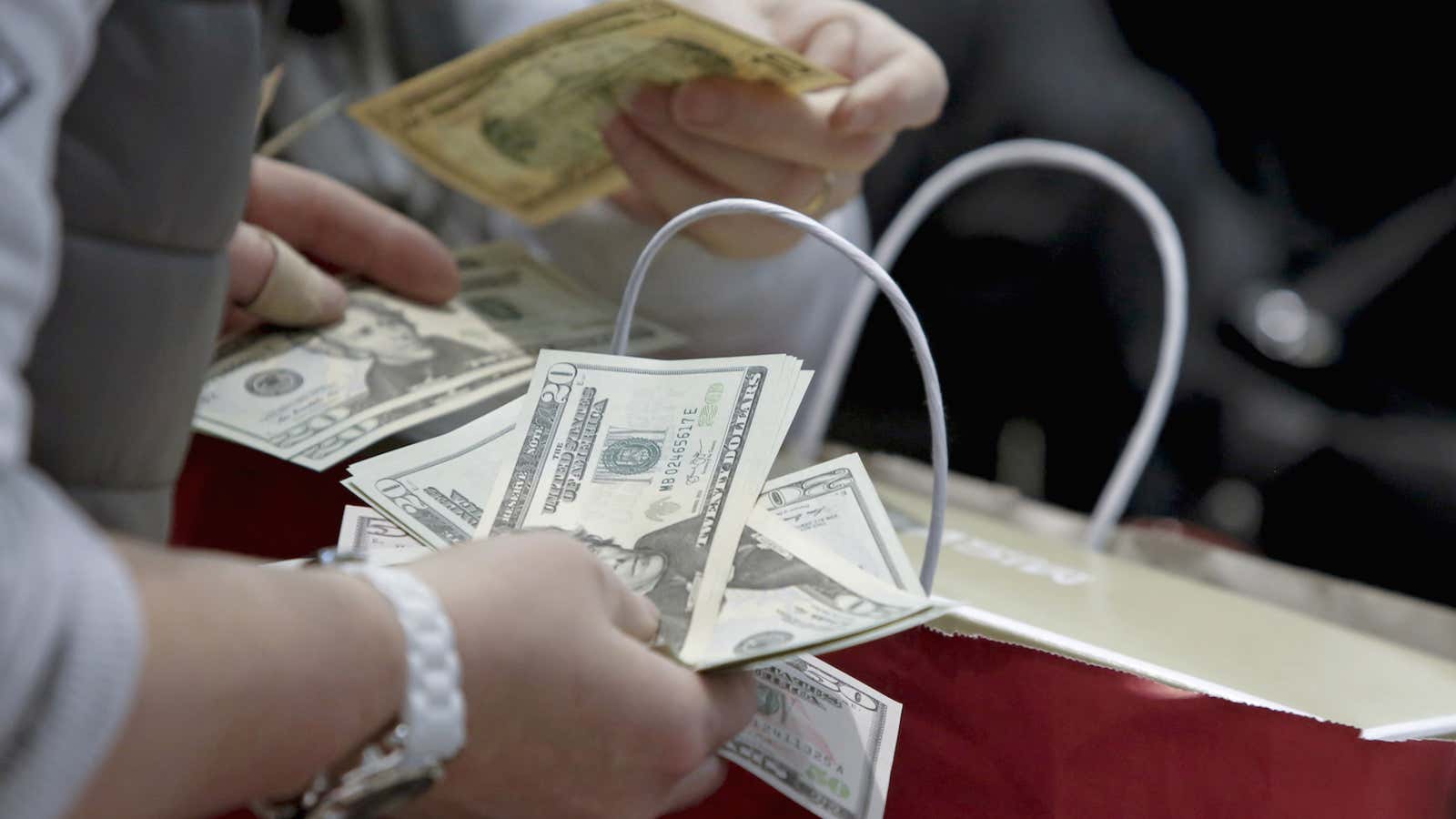Nobody wants to look selfish. When two people split a slice of cake at a restaurant, for example, it’s a safe bet that neither party will make a move to eat the last bite, an offering to the gods of etiquette.
But what if one diner just so happened to forget themselves in the midst of conversation, and thoughtlessly took the last piece of very delicious, very expensive, actually rather once-in-a-lifetime cake? That wouldn’t be selfish, now would it? It would just be a silly mistake, the kind of thing that could happen to anyone.
A new working paper, posted on the National Bureau of Economic Research website, sheds light on this kind of self-serving screwup. Across three studies with a total of 4,200 applicants, researchers found that people made unnecessary errors when the mistake allowed them to achieve a more personally desirable outcome. But when there was no possibility of having the mistake work out in their favor, they made very few errors at all.
“By acting as if they suffer from cognitive limitations or behavioral biases, individuals appear to ‘create’ uncertainty (e.g., about whether selfishness was caused by a decision error) in order to rationalize undesirable choices,” the authors conclude. In other words, people mess up—accidentally-on-purpose—when they sense that a simple blunder will help them avoid being judged for, or feeling bad about, acting selfishly. The authors call this a “motivated error.”
So how does this play out, exactly? In one experiment, participants could choose to get money themselves or give the money to charity. They were more likely to make a simple mathematical error involving adding with zeroes—a concept that first-graders are familiar with—when doing so meant that they could elect to hang onto the money. Yet participants weren’t confused by zeroes at all when they were choosing between giving money to two charities, with no possibility of keeping the money themselves. “Agents only act as if they cannot properly add a zero when doing so can rationalize selfish decisions,” the authors explain.
In another experiment, where participants had to choose between keeping a sum for themselves or giving it to multiple charities, they were more likely to keep the money when the presence of additional information (that one of the charities would receive 0 cents) made it possible to act as if that particular bit of knowledge was what swayed them, rather than a desire for financial gain. And in a third experiment, participants were more likely to fall prey to anchoring bias—that is, placing too much emphasis on the first piece of information they were given—when doing so meant that they came out ahead.
The paper by Christine Exley, an assistant professor of business administration at Harvard Business School, and Judd B. Kessler, an associate professor of business economics and public policy at the Wharton School of the University of Pennsylvania, has not yet been peer-reviewed. But as the authors point out, it’s consistent with other research suggesting that people also become surprisingly forgetful when it means that they can hold onto self-serving beliefs. (Consider the entrepreneur and self-proclaimed “self-made man” who conveniently erases the fact that his parents gave him a $500,000 loan from his memory, or the CEO who touts her progressive culture but is unable to recall exactly how much parental leave employees get, perhaps because the answer is only two weeks.)
So the next time someone cancels on you at the last minute with the excuse that they simply don’t know how they mixed up the time and date, ask your friend if they’ve ever heard of the term “motivated error.” But know that if they’re habitually selfish, chances are high they’ll go on to forget all about it.
